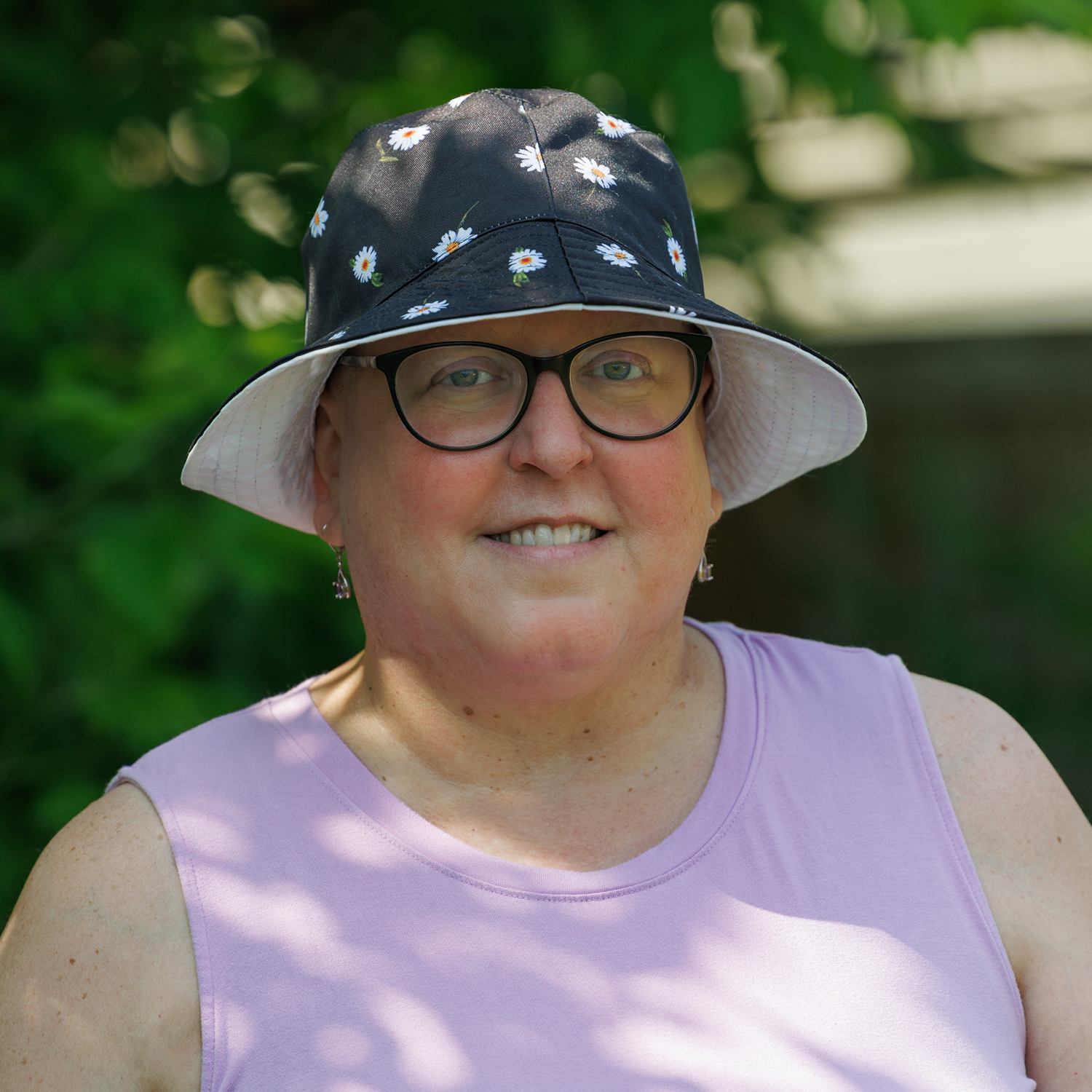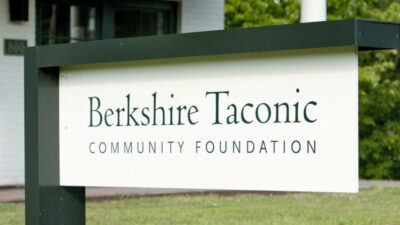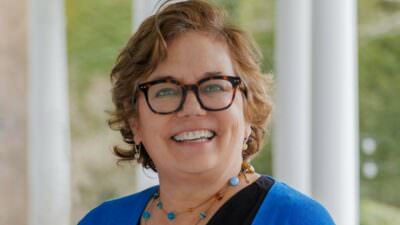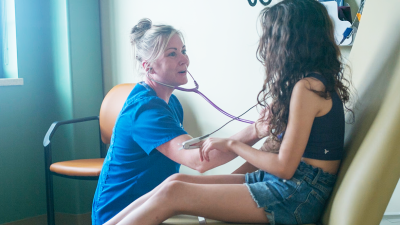
The Denise Kaley Fund for Berkshire County Women with Cancer is a unique and valuable local resource. What began as a vehicle to provide emergency financial assistance has evolved to encompass free ongoing access to health coaching. Monetary support, and health coaching that works in tandem with medical treatment, give women more control over their lives.
Sue Budz, Oncology Social Worker at The David Phelps Cancer Center in Pittsfield, Mass., has worked with The Denise Kaley fund for 10 years. Her colleague Amanda Bayliss, an Integrative Health Coach, has worked with the fund for 5 years. As conversational partners with women in treatment, they have seen a common theme emerge; as women are relieved of the burden of some urgent expenses, they can direct their attention to lifestyle improvements that support their physical, mental and emotional health.
The health coaching option is part of the Cancer Center’s Integrative Health Program, which also provides access to free complementary therapies not covered by the fund such as meditation, yoga, art, exercise, nutrition, counseling and more to anyone in the county with a cancer diagnosis. Women in treatment say that having ways to reduce stress, express creativity, and connect with others in person are vital to their healing and overall well-being.
The fund was established 15 years ago by Denise Kaley and her close friend Barbara Bonner, a month before Kaley's passing from lung cancer at the age of 46. A much-beloved healer in the Berkshires, Kaley was mindful of wanting to use her illness to help others who would follow in what she called her "cancer journey." Bonner directs the fund's Advisory Committee, comprised of fellow members Ellen Casey Boyd and Beth Rose. Since 2010, the fund has helped over 375 women with emergency expenses. Five years ago, the fund began supporting free health coaching, which has served 50 women to date.
Normalizing Financial Help: Addressing "The Silent Symptom"
Starting treatment can necessitate leaving a job or working part-time, resulting in significantly reduced or non-existent income. Living expenses and medical fees not covered by insurance can balloon rapidly at a time when women are most vulnerable economically. Sue Budz calls this kind of economic distress "the silent symptom." Moreover, she sees financial need only increasing, and notes that many women still hesitate to ask for help. She is determined to normalize financial help for patients in need; caregivers at BMC and the Nurse Navigation Team are trained to inform women about the fund early on in their treatment and provide reminders along the way. The fund is among the few "safety nets" for patients. Just as meaningful, it shows them there is a community of people who care about them. Rolling, "real-time" requests for financial assistance allow bills to be paid quickly. In addition, $100 food and gas cards are given to any woman in cancer treatment in the county, whether they apply to the fund or not.
Listening to Women: The "Tender Work"
Many women share during their coaching sessions that facing a cancer diagnosis compels them to re-evaluate their entire life; they often need to navigate a new landscape of complex decisions for both their medical care and personal lives. Budz and Bayliss are seasoned listeners in this challenging and meaningful work. They help women identify their choices and connect them to additional resources. Budz says, "This is tender work."
Each woman's progress looks different. Some women need support to shift from being their family's primary caregiver to someone who can receive help from others. Many find the post-treatment phase one of the most difficult to navigate; that is why the fund provides free ongoing access to health coaching for women re-integrating into their lives.
Bayliss encourages women she coaches to envision their best life and health and ask themselves what they truly want in all areas of their lives. Budz says that answering those questions is when real changes start to take hold. "Spirituality, work/life balance, mindfulness, stress reduction, movement, rest, nutrition. All are intertwined and connected." Bayliss says. Sometimes, after tackling a challenge like improved sleep, women join a singing group or even get a new job. As women learn they can co-create a map of practices to support their health, they take ownership of those actions and gain more personal agency. They learn to trust themselves and their decision-making processes. Budz says, "It's a beautiful thing to watch."
Missy's Story
Missy, a Pittsfield resident who owns a hairdressing business, is currently in treatment and has received financial assistance through the fund. She's been self-employed for over 30 years and is eager to return to work. She's just completed her fourth of 12 treatments at the Cancer Center, which will take 9 months to complete. She says, "I have good days and bad days."
Sue Budz guided Missy toward the fund to help with mortgage, electric, and gas bills. Missy shares that as she navigated her options for dealing with personal expenses, she found that while banks and utility companies sometimes offer temporary deferments or payment plans, there are often additional costs associated with those options. In addition, there are barriers to accessing social security and disability benefits right away. Money concerns, Missy says, "are the last thing you want to deal with" when you are trying to focus solely on your health. The Denise Kaley Fund was the first resource she encountered that provided immediate relief, no strings attached. When learning of the support she'd get from the fund, she shared, "I just started crying."
Missy is fortunate to have some help from her aunt, sister and friends nearby; her co-workers at the salon have also been able to take care of her clients while she's undergoing treatment. Missy says she was "floundering" until she learned that there was a network of support she could tap into at the Cancer Center. Recently, she's participated in a few Meditation and Balance classes to relieve stress and support her healing.
Women Discover New Strengths as they Take Charge of their Healing Journey
Sue and Amanda underscore that it is the dedication of the female patients themselves to improve their own quality of life, incrementally, that is the most inspiring to them. Financial help without stigma gives women dignity and reduces stress. Through coaching, women learn new ways to advocate for themselves.
Wendy Krom, a breast cancer survivor, is a perfect example. Upon reaching one-year cancer free, she was inspired to support the fund by inviting family and friends to join her in walking the entire length of the Ashuwillticook Trail as a fundraiser. After completing medical treatment and health coaching, she found her way to a renewed lifestyle that includes daily walks and reconnecting with friends. She also decided to reinvent her work life to one that "nourishes my soul."
An Enduring Legacy of Care and Collaboration
A network of women comprised of the advisory committee, the BMC nurse navigation team, and Cancer Center staff all work in concert to honor Denise's vision. Denise's close friend Barbara shares that Denise, during the 18 months she could not work, "felt blessed to be surrounded by a loving and supportive family and an army of friends." In that spirit, The Denise Kaley Fund's work continues to show women that they are not alone. "Our role is to empower women," Budz says. "We are walking alongside them."
Acknowledgements:
Research for this article included the valuable firsthand insights and historical knowledge of the fund from community partners Sue Budz and Amanda Bayliss at The David Phelps Cancer Center; The Advisory Committee of Barbara Bonner, Ellen Casey Boyd and Beth Rose; Foundation staffers Leila Kaplan, Berkshire Taconic Community Engagement Officer (Columbia & Berkshire Counties) and Maeve O’Dea, Program Director. We also thank Missy for her trust in sharing her story.
Learn more about The Denise Kaley Fund. If you wish to contribute to the next 15 years of The Denise Kaley Fund, please donate.




